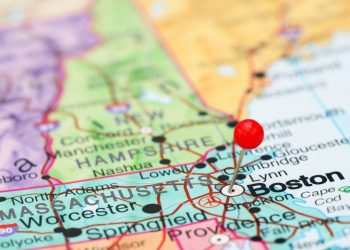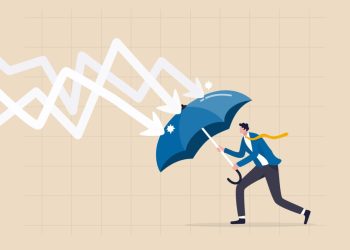By Randi F. Marshall
RISMEDIA, August 14, 2008-(MCT)-First, the bad news. There is no real way to prevent someone from stealing your identity or swiping financial and personal information, unless you have no bank accounts, credit cards or Social Security number. Let’s deal with the good news. Consumers can take certain solid steps to protect themselves, to make identity theft less likely and to make their financial data less vulnerable.”There’s no slam dunk, 100 percent way to prevent identity theft,” said Adam Levin, a former New Jersey Consumer Affairs director and chairman of Identity Theft 911, an Arizona company that provides advice, education and assistance about how to recover from identity theft. “The best people can do is mitigate their risk.”
Even when large-scale identity theft occurs-such as the case exposed last week involving hackers who stole more than 40 million credit and debit card numbers-the odds of having your identity lifted are still small, experts said.
Stay vigilant; protect yourself. That’s the best advice from experts. To do so, consumers have to think broadly, from their wallets and mailboxes to trash cans and computers.
Here’s some key advice.
– Your Mail: Do not pay bills by putting a check in an envelope and then mailing it through your own curbside mailbox. A flag up on a curbside mailbox is an automatic signal to would-be identity thieves that there could be documents inside worth taking, experts said. Similarly, thieves could go through your received mail too, so stop your mail when you’re on vacation and consider getting a lock for your mailbox, or even a post-office box for key documents. Pick up new checks at your local bank branch, instead of having them sent to you by mail.
When you go through your mail, do not just throw out junk mail, credit card offers, bills and other documents with any personal information on them. Experts universally suggest buying a shredder to handle them. Don’t just cut them up or rip them in half-shred them.
Additionally, Det. Lt. Greg Byrne, with the Suffolk County (N.Y.) Police Department’s chief of detectives office, suggested opting out of prescreened credit offers, pointing to phone numbers like 888-5OPTOUT that can help consumers do just that. (The same service is also available at optoutprescreen.com.) “A lot of people take a laissez-faire attitude toward protecting their credit and protecting their identity,” Byrne said. “But there are a lot of things you can do.”
– It’s Not Just Finances: Remember that identity theft goes beyond your finances. Think about protecting your identity everywhere, from the doctor’s office to your favorite restaurant, experts said. And that goes for family members, too, as experts say you should think about your children and, especially, elderly parents, when protecting against identity thieves. “Use common sense and be vigilant,” said Alan Kahn, a Syosset accountant. “It’s very important not to take the easy way out here.”
– Your Computer: Make sure you have a firewall, anti-virus and anti-spyware software installed on your computer. Watch out for unsolicited offers and notices by e-mail. Don’t open attachments unless you know what they are and who they came from. Don’t click on links in e-mails that offer you the moon or ask you to update information. Many are disguised as coming from your bank or other trusted sites, but are really ways to get your personal data. Instead, type in the Web address you know into a new browser to verify the source.
Protect your BlackBerry devices and laptops by requiring a password to access the systems. If you lose or leave them somewhere, no one can use your computer and take information, said Alan Kahn, a Syosset, N.Y., certified public accountant and financial planner.
And choose all passwords carefully-do not tie them with your birth date or easy-to-guess phrases.
Despite these cautions, experts say you should indeed participate in online banking and credit card websites. It’s no longer enough to check your credit card or bank statements once a month when they come in the mail. Check them every day online, or at least more than once a week. And consider getting your statements online. “Getting rid of the paper means you’re taking away one of the things identity thieves love,” said Steve Ely, president of personal solutions at Equifax, the credit reporting firm.
– Your Credit: Get a free credit report once a year from annualcreditreport.com. Some experts suggest checking it more often than that, while others point to companies that offer identity and credit monitoring programs. For a fee, they will do the work for you. Consider putting a security freeze on your credit, which would prevent anyone from opening a new line of credit on your account. Don’t do this if you’re about to get a mortgage–but it may be a good idea if you’re not planning to get new credit anytime soon.
– Your Phone: Do not give out personal information to anyone who calls you. Ever. If someone says he is with your credit card company, tell him you’ll call him back. Then, get your credit card and call the number on its back. That way, you know you’re calling the legitimate company and can check on the truthfulness of the phone call you just received.
– Your Shopping and Banking: Be wary of debit cards. First, they come with a higher liability than credit cards if they are lost, stolen or used without authorization. Secondly, if a thief uses them, he or she could siphon money directly from your bank accounts. Until you get the situation fixed, you’ll be taking the loss directly.
And if you use debit cards for shopping at stores or online, your debit card number and PIN is available for the taking. “I don’t use debit cards,” said Jay Foley, who heads the Identity Theft Resource Center in San Diego, noting that consumers can ask their banks for ATM-only cards. “They are a time bomb.”
On a similar note, use bank ATMs, not independent ones located in grocery or drugstores, experts said. And check ATMs by gently sticking your finger in the slot. If the slot moves, it may have been tampered with, Foley said.
When you shop or bank online, make sure you choose only reputable, known retailers. Check the bottom right corner of the website for a small lock icon, says Carnegie Mellon University Engineering Dean Pradeep Khosla, who works with the university’s cybersecurity lab. If the lock is locked, it’s a safe, encrypted site. If it’s unlocked, it’s not. (Not all websites have this feature, but it’s worth looking for.)
Also use a single credit card for all online transactions, and keep its credit limit low, said Tom Harkins, chief strategy officer for Secure Identity Systems, and a former MasterCard vice president. Experts say that websites like PayPal can provide secure ways to make payments as well.
– Your Wallet: Keep only a few credit cards in your wallet and keep copies of the fronts and backs of them someplace safe. Check all insurance, Medicare, Medicaid and other identification cards to make sure they do not contain your Social Security number. If your Medicare card carries your Social Security number, make a copy, cut out the last four digits and carry the copy with you, leaving the original at home except when you’re seeing new doctors, says Jay Foley, who heads the Identity Theft Resource Center in San Diego.
As for your Social Security card? Leave it someplace safe-not your wallet. “That is the gateway to your identity,” said Gail Cunningham, a spokeswoman for the National Foundation for Credit Counseling in Silver Spring, Md.
© 2008, Newsday.
Distributed by McClatchy-Tribune Information Services.










